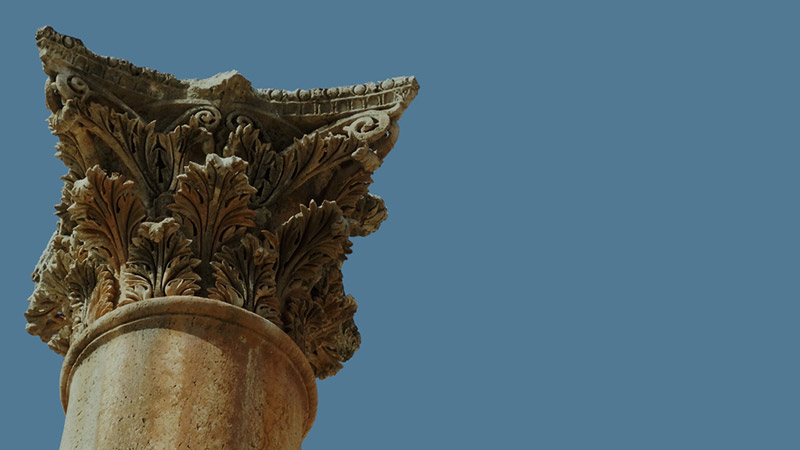More Results
Showing 12 of 165
Articles

Herod's Family
Herod's FamilyHerod lay dying in his opulent palace in Jericho. He had been seriously ill for a long time. From the description in Josephus' writings, Herod had gangrene, severe itching, convulsions, and ulcers. His feet were covered with tumors, ...
MOREEncyclopedia

Gamla
Gamla is often called the "Masada" of the north because of the siege and fall of the town to the Romans during the Jewish Revolts. The city was originally settled by a group of Jews returning from captivity around 150 BC.The city is loca...
MORE
Gates of Hell
City of PagansCaesarea Philippi, which stood in a lush area near the foot of Mount Hermon, was a city dominated by immoral activities and pagan worship.Caesarea Philippi stood only twenty-five miles from the religious communities of Galilee. But t...
MORE
Gethsemane and the Olive Press
The word gethsemane is derived from two Hebrew words: gat, which means "a place for pressing oil (or wine)" and shemanim, which means "oils."During Jesus' time, heavy stone slabs were lowered onto olives that had already been c...
MORE
Gezer
Gezer stands to the east of Israel's coastal plain, a fertile stretch of land that lines the Mediterranean Sea. To the east are foothills, called the Shephelah, beyond which lie the Judean mountains and the Arabian Desert. Only fifteen miles away ...
MORE
Herod's Masada
Herod built the fortress-palace of Masada on a huge rock plateau overlooking the Dead Sea in the barren, remote, Judea Wilderness.Protection The top of the plateau, being more than twenty acres in size and nearly 1,300 feet above sea level, provid...
MORE
Herod's Temple
The Construction of the TempleMade of marble and gold, Herod's temple was taller than a fifteen-story building. Built on the exact location of Solomon's temple and the temple Nehemiah constructed, it could accommodate hundreds of thousands of pilg...
MORE
Herodion
Viewed from the north from more than five miles away, the volcano-shaped mountaintop created by Herod dominates the skyline. The powerful appearance of this fortress is even more amazing when you consider that there was a circular palace coming ou...
MOREGlossary

Gethsemane Definition
The word gethsemane is derived from two Hebrew words: gat, which means "a place for pressing oil (or wine)", and shemanim, which means "oils." During Jesus' time, heavy stone slabs were lowered onto olives that had already been...
MORE
Gilead Mountains Definition
Mountains east of the Jordan Valley between the Dead Sea and the Sea of Galilee.
MORE
Hebron Definition
Means "league." Ancient city of Judah at the southern edge of the Hebron Mountains, north of the Negev and approximately 19 miles south of Jerusalem. Abraham lived here and purchased a tomb in this area where he, his wife, Sarah, Isaac, ...
MORE


















